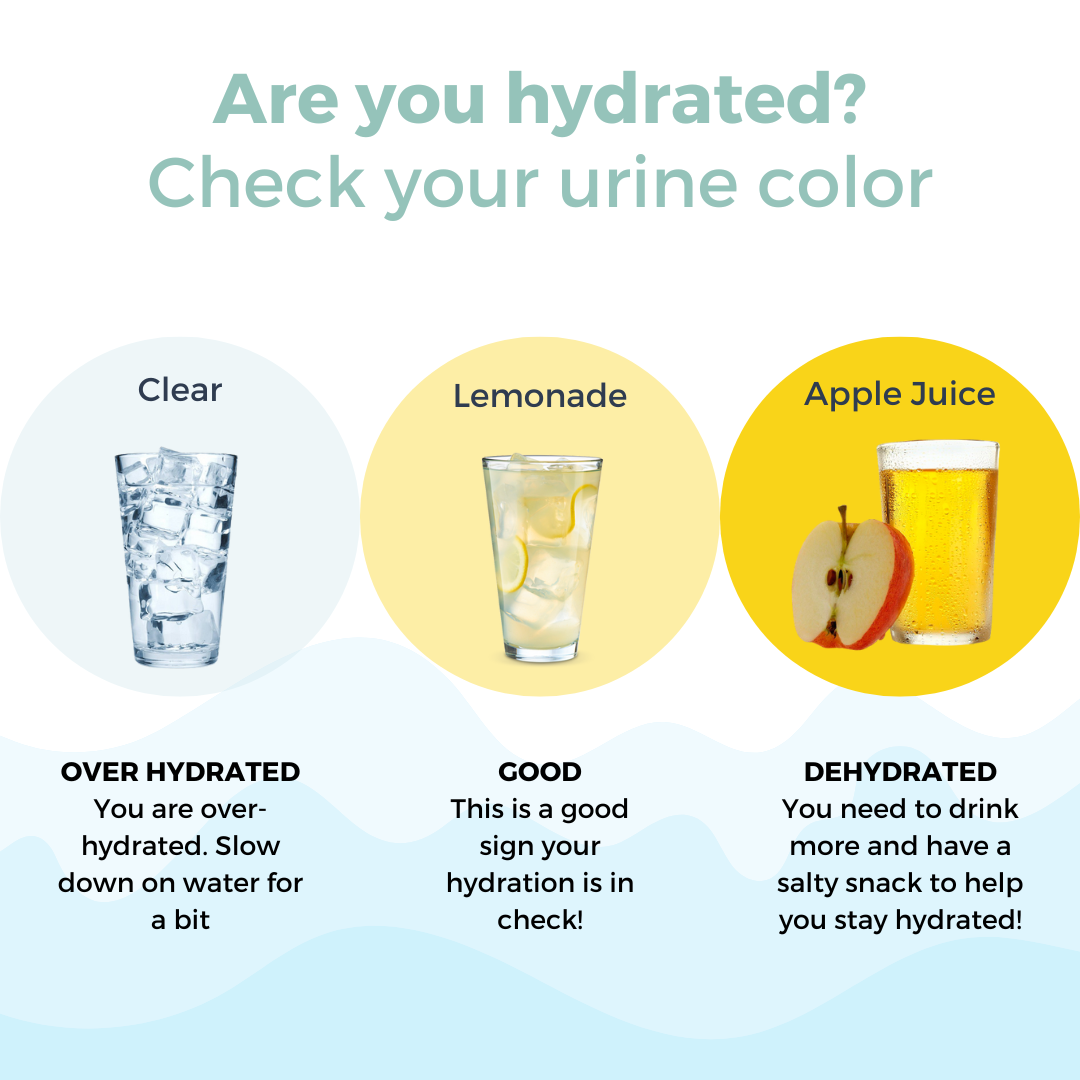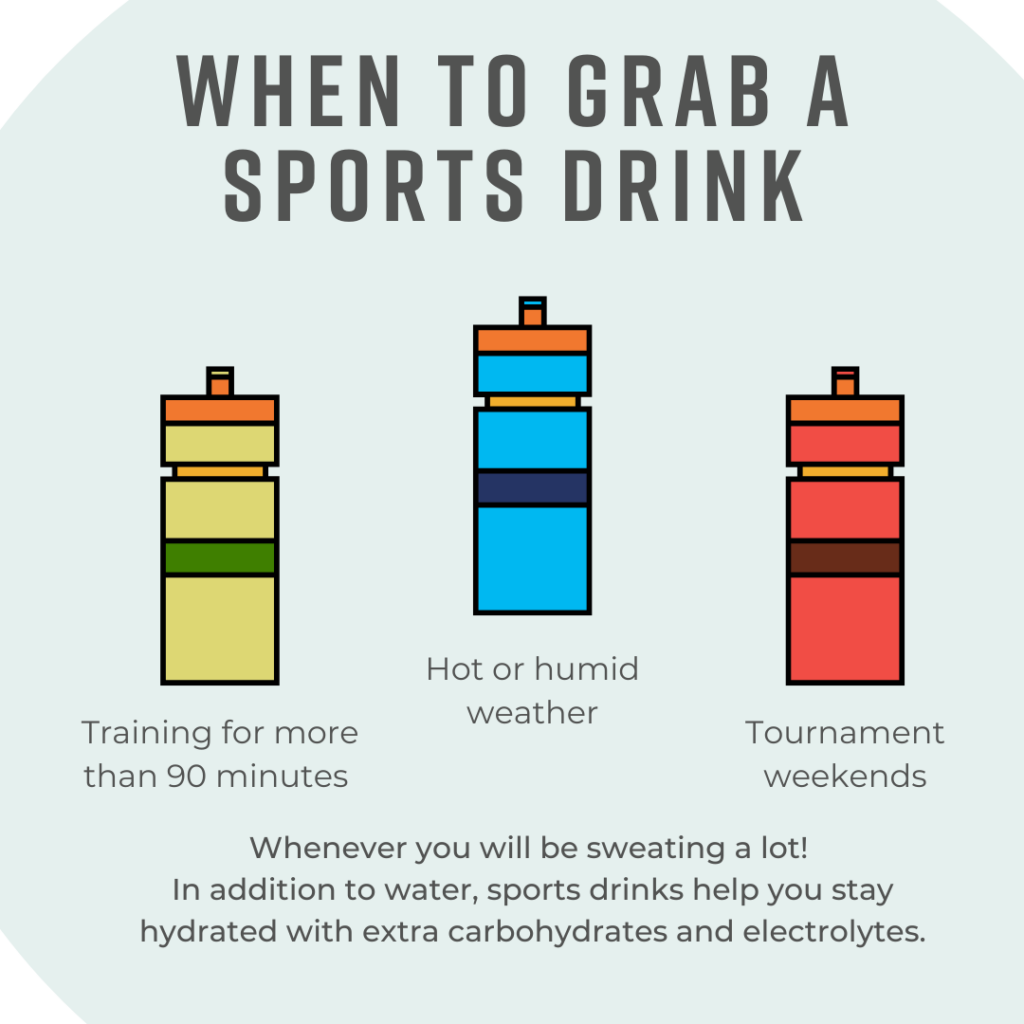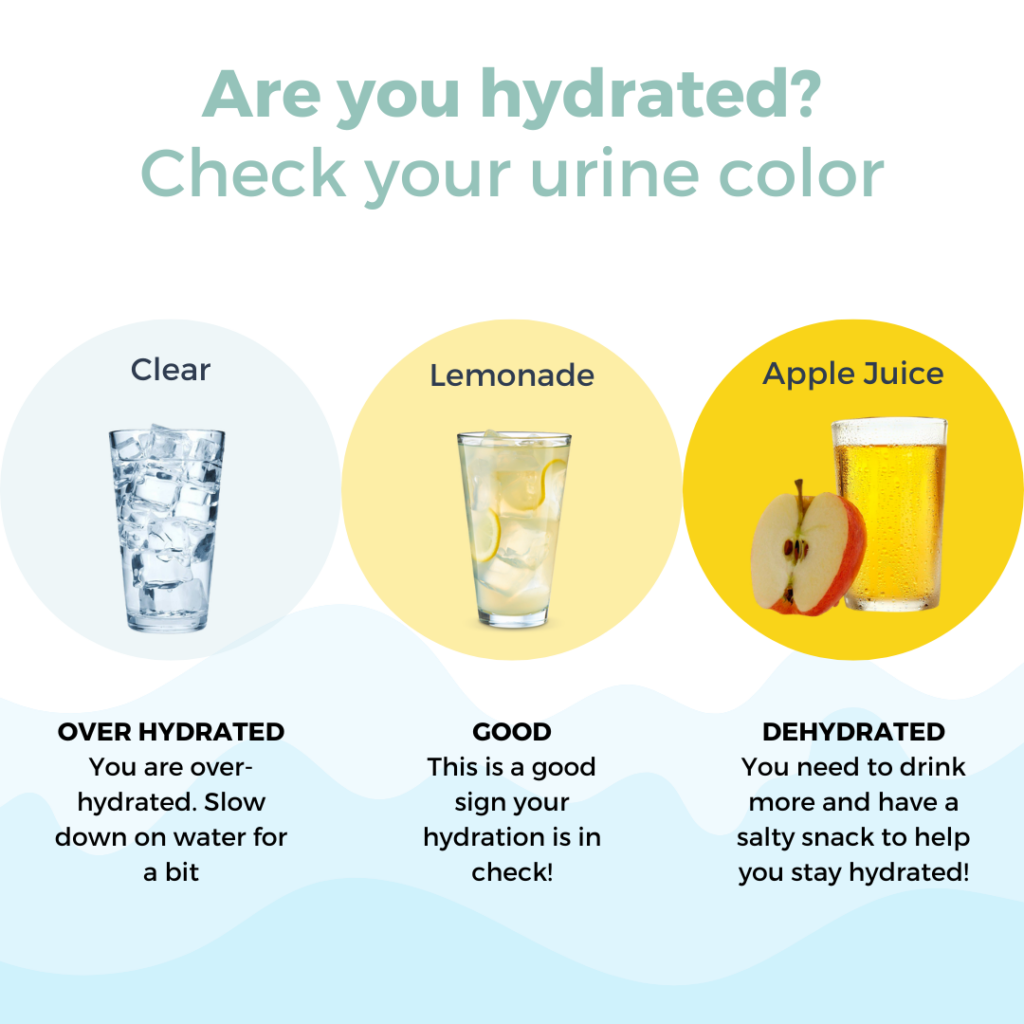The Blog
Hydration for High School Athletes

November 1, 2024
Did you know a 1 to 2% drop in your hydration can impact your performance? That’s the difference between being a step ahead or behind your competition – which could mean a win or loss. Dehydration is a scary place for an athlete. Even mild dehydration impacts coordination and reflexes, critical for game time reaction. Hydration plays a vital role for high school athletes. Having a strong hydration plan can boost your energy, focus, and endurance.
How Can High School Athletes Stay Hydrated?
Here is the Hydration Formula: Fluids, Carbohydrates, and Electrolytes
It starts with understanding how much water you need.
A good rule of thumb is to aim for about half of your body weight in ounces of water per day as a foundation. For example, if you weigh 150 pounds, aim to drink at least 75 ounces of water each day. But remember, this is a foundation. You should increase this number based on your training intensity, the weather, and your sweat rate.
The second part of maintaining your hydration is by focusing on nutrients. Electrolytes and carbohydrates help your body move fluids around your body.
Replacing electrolytes is essential for your hydration and performance. When you sweat you lose key electrolytes like sodium, calcium, magnesium, and potassium.
A pinch of salt in water or foods like pretzels can help replace your sodium. For potassium, bananas, potatoes, and orange juice are great choices.
You may notice a white ring of salt on your shirt or a gritty feeling on your face after long or hot practice. Replacing the salt and water you lost during practice is even more important on these days! During practice, sip on sports drinks or add a salty snack during water breaks like pretzels.
Lastly, we need to talk about carbohydrates. Carbohydrates are important for energy and hydration. This is why making carbohydrates the foundation of your fueling plan is so important.
Right before practice, you can boost your carbohydrates and electrolytes with a snack. Pair a banana with salted peanut butter, pretzels with fruit, or an apple sauce with a pinch of salt.
How should athletes stay hydrated?
Water isn’t your only option to stay hydrated. During the day you can mix it up with other beverages that count toward your hydration goals. Great options include – chocolate milk, seltzer, juice, and lemonade. These beverages also have the added benefit of providing key nutrients.
For example, chocolate milk is a great fluid because it has protein, carbohydrates, vitamin D, and calcium. That is what makes it a great choice for athletes as a recovery drink after practice.
Sports drinks are another example of an easy way to hydrate during training. Sports drinks are perfectly formulated to match the hydration formula with fluids, electrolytes, and carbohydrates.
If you are drinking a sports drink during a game, look for one that includes real carbohydrates for energy, not just the low-calorie options that miss the mark on hydration and energy. Remember, your body needs the energy from carbohydrates and uses them to help you stay hydrated!

Practical hydration tips
The easiest way to stay hydrated is to make sure water is always within reach. Chugging water right before practice will leave you sloshy and uncomfortable.
- Try drinking a glass of water or milk with each meal.
- Keep your water bottle close—on your desk during school, in your backpack, or by your side during practice.
- Use a bright colored water bottle that stands out, or even one with a straw to make it easier to sip throughout the day.
- Set reminders on your phone every few hours to fill up your water bottle.
- Check you hydration plan! To quickly test your hydration, look at the color of your urine.

Hydration for high school athletes starts with a plan! Athletes who keep water close tend to drink more often, which is key to staying ahead on your hydration.
Be the first to comment